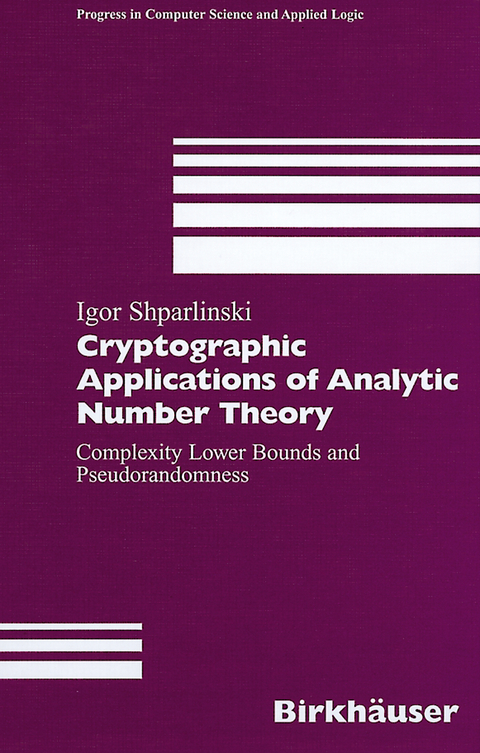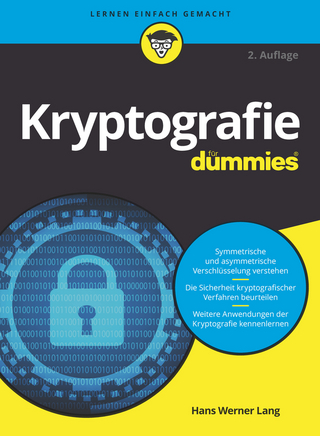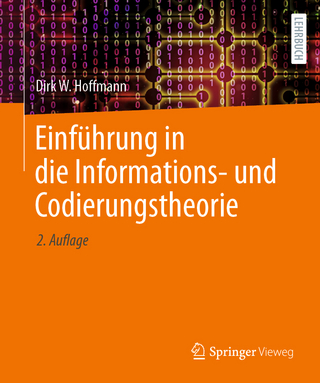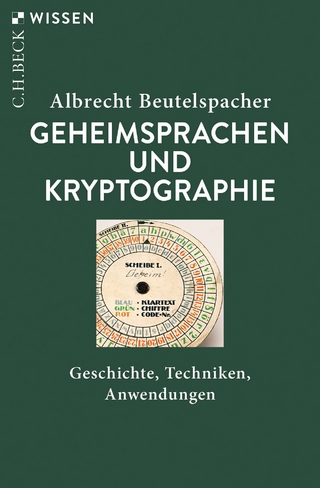
Cryptographic Applications of Analytic Number Theory
Springer Basel (Verlag)
978-3-7643-6654-4 (ISBN)
I Preliminaries.- 1 Basic Notation and Definitions.- 2 Polynomials and Recurrence Sequences.- 3 Exponential Sums.- 4 Distribution and Discrepancy.- 5 Arithmetic Functions.- 6 Lattices and the Hidden Number Problem.- 7 Complexity Theory.- II Approximation and Complexity of the Discrete Logarithm.- 8 Approximation of the Discrete Logarithm Modulop.- 9 Approximation of the Discrete Logarithm Modulop -1.- 10 Approximation of the Discrete Logarithm by Boolean Functions.- 11 Approximation of the Discrete Logarithm by Real Polynomials.- III Approximation and Complexity of the Diffie-Hellman Secret Key.- 12 Polynomial Approximation and Arithmetic Complexity of the.- Diffie-Hellman Secret Key.- 13 Boolean Complexity of the Diffie-Hellman Secret Key.- 14 Bit Security of the Diffie-Hellman Secret Key.- IV Other Cryptographic Constructions.- 15 Security Against the Cycling Attack on the RSA and Timed-release Crypto.- 16 The Insecurity of the Digital Signature Algorithm with Partially Known Nonces.- 17 Distribution of the ElGamal Signature.- 18 Bit Security of the RSA Encryption and the Shamir Message Passing Scheme.- 19 Bit Security of the XTR and LUC Secret Keys.- 20 Bit Security of NTRU.- 21 Distribution of the RSA and Exponential Pairs.- 22 Exponentiation and Inversion with Precomputation.- V Pseudorandom Number Generators.- 23 RSA and Blum-Blum-Shub Generators.- 24 Naor-Reingold Function.- 25 1/M Generator.- 26 Inversive, Polynomial and Quadratic Exponential Generators.- 27 Subset Sum Generators.- VI Other Applications.- 28 Square-Freeness Testing and Other Number-Theoretic Problems.- 29 Trade-off Between the Boolean and Arithmetic Depths of ModulopFunctions.- 30 Polynomial Approximation, Permanents and Noisy Exponentiation in Finite Fields.- 31 Special Polynomials and BooleanFunctions.- VII Concluding Remarks and Open Questions.
From the reviews:
"Igor Shparlinski is a very prolific mathematician and computer scientist ... . The book is written at a very high level, suitable for graduate students and researchers in computer science and mathematics. ... book has a unique perspective, and is not really comparable to other books in the area. ... book contains many deep results, and the mathematically-sophisticated reader can find much that is novel. ... this is an impressive work that will be of significant interest to researchers in cryptography and algorithmic number theory." (Jeffrey Shallit, SIGACT News, Vol. 41 (3), September, 2010)| Erscheint lt. Verlag | 11.12.2002 |
|---|---|
| Reihe/Serie | Progress in Computer Science and Applied Logic |
| Zusatzinfo | IX, 414 p. |
| Verlagsort | Basel |
| Sprache | englisch |
| Maße | 155 x 235 mm |
| Gewicht | 860 g |
| Themenwelt | Informatik ► Theorie / Studium ► Kryptologie |
| Mathematik / Informatik ► Mathematik ► Angewandte Mathematik | |
| Mathematik / Informatik ► Mathematik ► Arithmetik / Zahlentheorie | |
| Mathematik / Informatik ► Mathematik ► Wahrscheinlichkeit / Kombinatorik | |
| Schlagworte | Complexity • Complexity theory • Computer Science • cryptography • Digital Signature Algorithm • finite field • Komplexitätstheorie • Kryptographie / Kryptologie • Nonce • Number Theory • Sage • Zahlentheorie |
| ISBN-10 | 3-7643-6654-0 / 3764366540 |
| ISBN-13 | 978-3-7643-6654-4 / 9783764366544 |
| Zustand | Neuware |
| Informationen gemäß Produktsicherheitsverordnung (GPSR) | |
| Haben Sie eine Frage zum Produkt? |
aus dem Bereich


